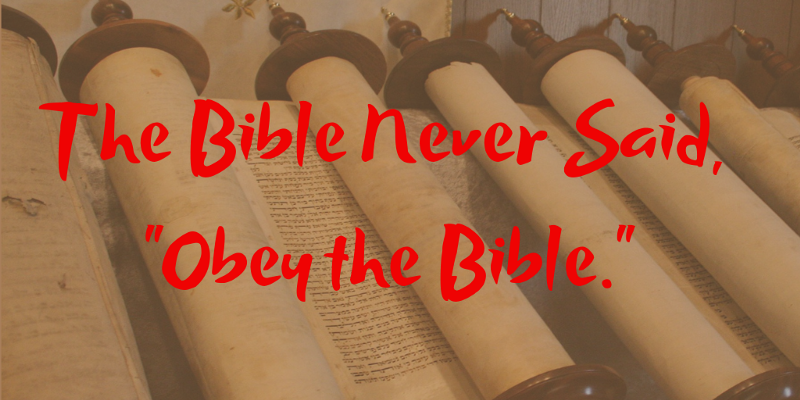
In “Be Free or Be Evil” the Three Failed Pastors discuss the potential of the elementary principles of the world to unleash untold evil.
Stanley Milgram’s experiments on obedience demonstrated, “the capacity for man to abandon his humanity…into the larger institutional structures.” In other words, when we must be free or be evil. So, Christ died to set us free.
In our previous episode, we discussed the role of law as both a facilitator of the elementary principles of the world and as a limiter of their potential for harm. This week, we’ll consider what happens when the elementary principles come under the control of wicked people.
“Be Free or Be Evil” Episode Notes:
Laws are supposed to mitigate corruption, but they frequently serve it.
I recently read about how Johnson and Johnson created a dummy company to absorb losses from a class action suit related to asbestos in their talcum powder products. Once that company was formed it filed chapter 11 bankruptcy nullifying the hundreds of millions of dollars in judgments against Johnson and Johnson. Consequently, thousands of women suffering from ovarian cancer and mesothelioma received zero compensation from the company. This whole maneuver was entirely legal.
Laws exist because people are inherently corrupt and yet it’s people who write, interpret and enforce laws. The best any legal system can do is stop more corruption than it facilitates. Even a law given by God becomes corrupt through human handling. Matthew 23 depicts Jesus barraging the teachers of the Mosaic law with a series of indictments. We saw the one about their being “whitewashed walls” earlier. Here’s another one:
“Woe to you, blind guides! You say, ‘If anyone swears by the temple, it means nothing; but anyone who swears by the gold of the temple is bound by that oath.’ You blind fools! Which is greater: the gold, or the temple that makes the gold sacred?”
(Matthew 23:16-17 NIV)
Why would someone stipulate which oaths are binding and which are not? I can think of no other reason than to deceive someone into thinking you’re dealing with them honestly when you’re not. So, the teachers of God’s law used it to sanction fraud. Those who learned this doctrine would not only have continued shady dealings but done so under the presumption of divine endorsement. How much harder would it have been to call such a person to repentance? Back to the example of Johnson and Johnson, how many of those executives salved their conscience with the justification that their actions were legal?
The elementary principles don’t just endorse personal corruption, they also breed it.
Authority and conformity are the means to power and the pursuit of power tends to corrupt. Proud people think they know best, and they come to feel entitled and/or compelled to bring their inferiors in line. Once they’ve begun to pursue power, they find the path littered with moral compromise. By the time they can influence the actions of other people they’ve become masters of coercion and manipulation. Power and corruption have correlated throughout human history.
Under the elementary principles, people are capable of anything.
Paul confessed that in his pre-converted life he’d served human authority and cultural conformity under the guise of religion. Rather than falling in behind God’s Messiah, he became his enemy. His own recap bears repeating here:
For you have heard of my previous way of life in Judaism, how intensely I persecuted the church of God and tried to destroy it. I was advancing in Judaism beyond many of my own age among my people and was extremely zealous for the traditions of my fathers.
(Galatians 1:13-14 NIV)
I imagine Saul of Tarsus as he fasted for three days in Damascus[ii] asking, “How did this happen?” According to Galatians 1, his answer emerged, “Because I was seeking to please people. Never again!”
If a deeply pious, conscientious Jew like Saul of Tarsus was capable of mass murder, where does that leave the rest of us? Conformists and rule-followers will conscientiously exterminate their fellow humans under the right circumstances. When laws are civil and society polite, we often fail to recognize our own moral bankruptcy. We retweet a virtuous-sounding platitude and pat ourselves on the back. We work hard, pay our taxes, and keep to ourselves, so we celebrate our status as societies contributing members. None of these actions say one word in favor of our real moral fiber. All that is needed for evil to triumph is for evil to move slowly or for it to appear as the only solution in a time of crisis. Once evil has passed into law it will quickly become a necessary evil and almost everyone will participate.
We must be free to become good. When we do good under external influence, it no longer counts as good. The person who does good under external influence will just as easily do evil under the same master.
I’ve quoted a lot of Bible verses to make my case here, but the moral hazards of serving the elementary principles are plain to the observant eye. About the transition in his subjects from moral individuals to agents of evil Stanley Milgram notes:
Specifically, the person entering an authority system no longer views himself as acting out of his own purposes but rather comes to see himself as an agent for executing the wishes of another person.[iii]
Milgram goes on to term this transition, “the agentic shift.” He goes on to discuss its moral implications:
The most far-reaching consequence of the agentic shift is that a man feels responsible to the authority directing him but feels no responsibility for the content of the actions that the authority prescribes. Morality does not disappear but acquires a radically different focus: the subordinate person feels shame or pride depending on how adequately he has performed the actions called for by the authority.[iv]
In his epilogue to the book, Milgram allows himself a philosophical analysis of his findings. His words speak poignantly of the need for each person to be set free from the elementary principles of the world:
Men do become angry; they do act hatefully and explode in a rage against others. But not here. Something far more dangerous is revealed: the capacity for man to abandon his humanity, indeed, the inevitability that he does so, as he merges his unique personality into the larger institutional structures.
This is a fatal flaw nature has designed into us, and which in the long run gives our species only a modest chance of survival.
What is the limit of such obedience? At many points we attempted to establish a boundary. Cries from the victim were inserted; they were not good enough. The victim claimed heart trouble; subject still shocked him on command. The victim pleaded to be let free, and his answers no longer registered on the signal box; subjects continued to shock him.
The results, as seen and felt in the laboratory, are to this author disturbing. They raise the possibility that human nature, or – more specifically – the kind of character produced in American democratic society, cannot be counted on to insulate its citizens from brutality and inhumane treatment at the direction of malevolent authority.[v]
Milgram, as disturbed as he was by his findings, offers no solutions in his book. His work only served to raise an alarm that to my knowledge has yet to be heeded in any way.[vi] Nearly 2000 years before Milgram, Saul of Tarsus saw this capacity for brutality in himself. He became aghast at it and at himself in the blinding light of Jesus. He knew he needed to be saved and he knew exactly what from.
Our choices come down to be free or be evil.
Milgram’s findings and Saul’s reveal the destructive ramifications of living under the elementary principles of the world. Saul’s example further demonstrates the enslaving and corrupting potential of religious belief. People already abdicate their humanity to authority and conformity, but those effects become more pronounced when the supposed authority is divine, and conformity is to a holy norm. I think the apostle Paul would have wholeheartedly agreed with this quote from the late Christopher Hitchens:
Violent, irrational, intolerant, allied to racism and tribalism and bigotry, invested in ignorance and hostile to free inquiry, contemptuous of women and coercive toward children: organized religion ought to have a great deal on its conscience.[vii]
Mr. Hitchens’s words point more clearly to the human need for salvation than any I’ve heard from most pulpits on Sunday morning. Hitchens blamed religion for what Milgram demonstrated to arise from human nature. No doubt religion often intensifies those corrupting influences. But that observation proves the human inability to escape the corrupt society even through our loftiest pursuits.
References:
[i] Article on Johnson and Johnson lawsuit.
[ii] Paul’s conversion story from Acts 9:1-19
[iii] Milgram p.133
[iv] IBID p.145-146
[v] Excerpts from Milgram p.188-189
[vi] A similar study in 2009 confirmed Milgram’s findings
[vii] God is Not Great







